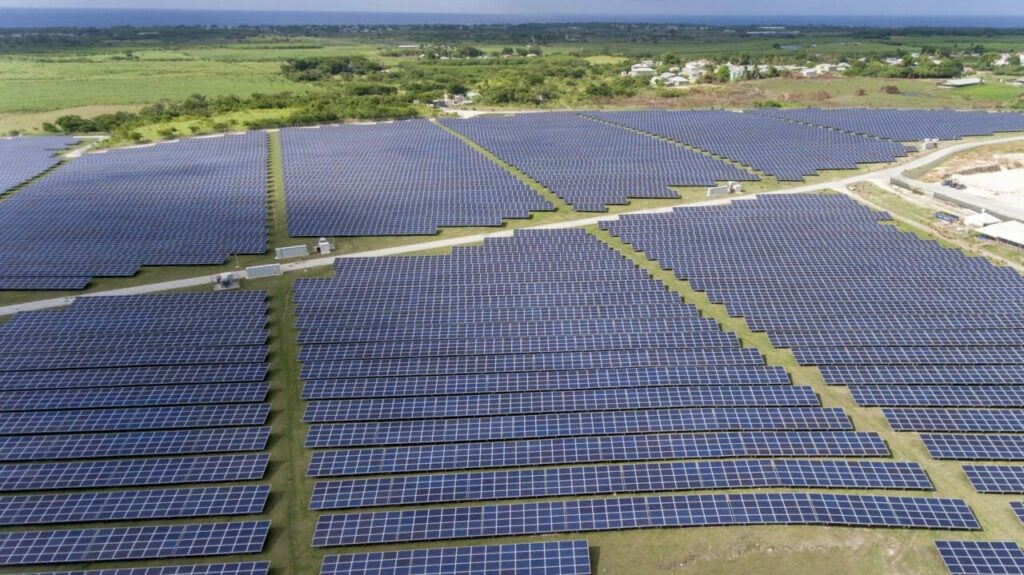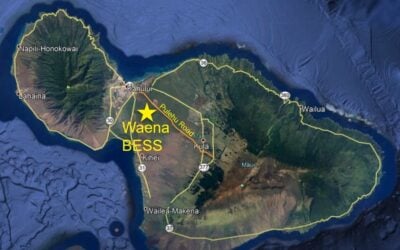
A cost recovery application for 90MW of battery storage, filed by Barbados Light & Power Company (BLPC), has been only partially approved by the eastern Caribbean island nation’s regulator.
The Barbados Fair Trading Commission (FTC) ruled this week (6 May) that the costs of 15MW of the total portfolio of battery energy storage systems (BESS) BLPC applied with can be recovered through a so-called Clean Energy Transition Rider (CETR).
Enjoy 12 months of exclusive analysis
- Regular insight and analysis of the industry’s biggest developments
- In-depth interviews with the industry’s leading figures
- Annual digital subscription to the PV Tech Power journal
- Discounts on Solar Media’s portfolio of events, in-person and virtual
With Barbados targeting an energy transition from being a petroleum-dependent economy to 100% renewable energy by 2030, the CETR allows for national utility BLPC to recover upfront costs associated with clean energy investments.
BLPC got the CETR mechanism itself approved on 31 May, and then applied in October for preapproval of investments and cost recovery for the 90MW of BESS, automatic generation control (AGC) systems, four synchronous condensers, and a pilot of a distributed energy resources (DERs) aggregation and control platform.
Investment in the synchronous condensers, which would provide inertia to the grid, was not approved, while the AGC and DERs projects were.
Barbados targeting 204MW BESS by 2030 to support renewables goals
The utility had proposed building eight BESS assets of 10MW and 10 smaller assets of 1MW each, all of 4-hour duration.
One 10MW system and five 1MW systems would’ve been put into operation before the end of this year, at an estimated cost of BBD$107.8 million (US$53.9 million); a further three 10MW systems and five 1MW assets would be put into service by 2025, costing BBD$223.7 million; the remaining four 10MW systems would be in operation by 2026, costing BBD$227.4 million.
BLPC had said that the need to invest in battery storage was immediate given Barbados having overshot the solar PV target in the government Integrated Resource & Resiliency Plan (IRRP) 2021 but with energy storage still far behind.
As of August 2023, there was only 5MW of battery storage connected to the island’s grid, all of it utility-owned while renewables generation capacity had hit 87MW.
The Barbados government had modelled a need for 204MW of energy storage by 2030 to support its renewable energy goal, with 144MW by 2025.
Moves are already being made to increase storage capacity: the government ordered BLPC to initiate a 50MW energy storage pilot programme and established an energy storage pilot tariff framework last year.
The pilot tariff is set at BBD$0.270/kWh for 4-hour systems of 1MW to 10MW, and BBD$30.34/kWh-month.
However, regarding BLPC’s latest proposal, the FTC only gave limited approval. The commission said the utility had not provided sufficient details of comparisons with alternative investments to the proposed lithium-ion BESS technology, except for pumped hydro energy storage (PHES).
Request reasonable, but regulator wants more analysis
The FTC said that it was “reasonable” for the utility to request cost recovery for 90MW of energy storage given that it would align with the IRRP 2021 goals for 2030, but that its proposal had not given sufficient justification that “all alternatives and costs were effectively considered to arrive at the capacity of BESS proposed.”
Among other reservations, the regulator also noted that project cost-benefit analysis did not encompass all relevant costs, such as those of deferring transmission and distribution (T&D) infrastructure investments.
The commission’s own calculations gave the expected cost for the BESS project equipment to be around BBD$395 million, excluding grid connection, shipment and infrastructure costs.
While this was lower than the utility’s own estimate of just under BBD$560 million, the Capex cost was still “significant,” the regulator said in its decision, and without more detailed cost-benefit analysis from the utility, it was “extremely difficult for the Commission to grant approval for the full CAPEX associated with the 90MW BESS.”
After approving the recovery of associated costs for just one 10MW project and five 1MW projects, the FTC said Barbados Power & Light Company should create an appropriate cost-benefit analysis for the remainder, taking into account “other costs, namely, costs associated with T&D deferrals and T&D upgrades.”






